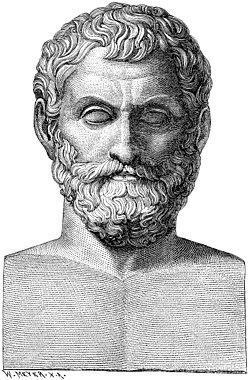The Birth of Philosophy

Today, I've decided to share my 'writings,' which I've written on my own and just for myself, in the public sphere. Why I'm doing this is a topic for another newsletter. Our first series of posts will, of course, be on the history of philosophy. I'm starting by sharing, in order, the sections of my approximately 93-page text titled "Presocratic Philosophy," which I wrote some time ago. Since much time has passed since I started writing it, I will be making continuous additions, so I won't be publishing them consecutively. And I suspect the additions I make will occupy more space, in terms of volume, than what I wrote back then. Unfortunately, I made the disgraceful mistake of not noting my sources at the time. For this reason, I will share probable sources at the end of each post. Fortunately, for every sentence I've quoted, it is written in parentheses from where, from whom, and from which page I quoted it. This means there's no issue of plagiarism :)
Since we are starting with the birth of philosophy, let's begin our work by looking at the meanings of the words 'philosophy' and 'philosopher'. The word philosophy comes from the Greek "Philosophia." It is a combination of the words Philo (love, pursuit) + Sophia (wisdom). Philosophers, in fact, are not supreme beings who have achieved philosophical freedom and possess all knowledge. We give the name 'philosopher' to those who strive to reach this nirvana-like conclusion.
"A true philosopher knows that he should not be called a philosopher. Even Kant, who was undoubtedly a philosopher, did not call himself one."
— Oruç Aruoba
There are actually two types of philosophers: one is an amateur, the other a professional. The word 'amateur' in English comes from the French amateur (one who does something for the love of it), which in turn comes from the Latin amator (lover), derived from the verb amare (to love). While true philosophers do this work as amateurs, there are also 'philosophers' who "sell" philosophy. They earn money from it; they might be academics or someone who has mastered the entire history of philosophy. However, we cannot call these people philosophers, because your priority for doing philosophy should not be money/sales. Indeed, choosing to study philosophy for financial gain is not very wise. Nevertheless, both the amateur and the professional are needed in the world.
The history of philosophy is divided into two periods: pre-Socratic and post-Socratic. In the Presocratic period, philosophers made the world—what it is, what it is made of, nature, and the environment—their main subjects. In the post-Socratic period, the primary subject on the table became man himself. The birth of rational thought began with the Presocratic period because the philosophers of that era, for the first time, started to think about the ongoing events around them instead of associating them with gods and religion, thus connecting them with reason. The first philosophers broke away from the past and created a new field for themselves. Instead of conforming to religion, revelation, stories, and myths, they turned to their minds. At the same time, they had to teach this to the public and their circles, which led them to establish their own students and schools. We must not forget that they never expected their students to hold the same opinions as them.
The first philosophers began to emerge in the 6th century B.C. The first name to go down in Western history as a philosopher is "Thales," born in the city of Miletus in what is today Asia Minor (Anatolia). Due to the city's name, they are known as the Milesian School. Although we do not know Thales's exact birth/death dates, it is thought that his star shone during this period because he correctly predicted the solar eclipse that occurred in 585 B.C., and this was recorded. The history of science also begins with Thales, thanks to his correct prediction of the solar eclipse. Thales was the first engineer who changed the course of the Kızılırmak River, allowing the Lydian King Croesus to pass. He could measure the height of the Pyramids by their shadows. The Egyptians were still busy building tombs at that time, unaware of how revolutionary their structures were. They could not measure the height of the very structures they built.
However, these were not the main reasons the history of philosophy begins with Thales. Thales's questions were more important than his answers. For the first time, Thales tried to explain nature not with established religious elements, but with nature itself. He began to search for the first substance underlying nature, the arche.
Arche is one of the most important concepts in Ancient Greek Philosophy. Arche means beginning, the first, the fundamental basis, the SUBSTANCE from which all beings emerge. According to Al-Farabi, the definition of the concept of substance is given in the first chapter of his book, The Ideal State, as follows:

"The First Existent (Substance) (mavjûd) is the first cause (sabab) of the existence (vucûd) of all other existents... [see full text above]"
- Al-Farabi, The Ideal State, Chapter I
We understand that the primary goal of the Presocratic philosophers was to know the arche. After this post, we will examine Thales's philosophy in detail. In another post, we will explain as best we can why philosophy was born in Ionia and not in Ancient Egypt... Let’s see how many of these ideas come to life :)